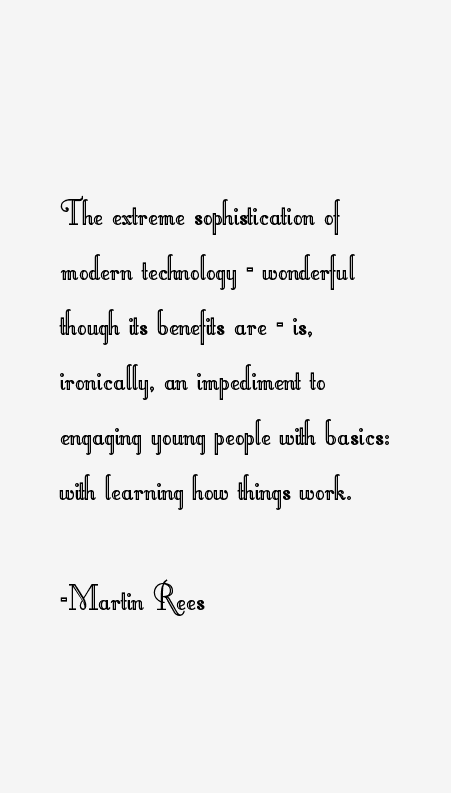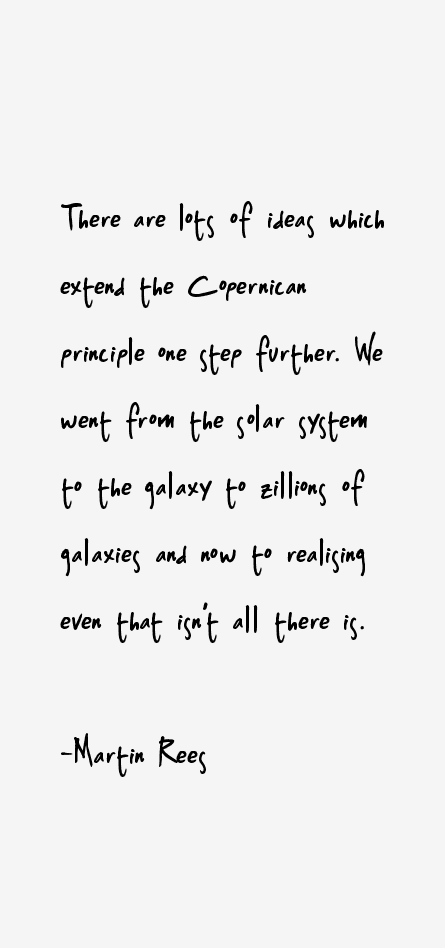Martin Rees Quotes & Sayings (Page 4)
Martin Rees quotes and sayings page 4 (scientist). Here's quote # 31 through 40 out of the 105 we have.
“The first voyagers to the stars will be creatures whose life cycle is matched to the voyage: the aeons involved in traversing the galaxy are not daunting to immortal beings. By the end of the third millennium, travel to other stars could be technically feasible. But would there be sufficient motive?”

“We do not fully understand the consequences of rising populations and increasing energy consumption on the interwoven fabric of atmosphere, water, land and life.”
“Issues relating to global health and sustainability must stay high on the agenda if we are to cope with an ageing and ever-increasing population, with growing pressure on resources, and with rising global temperatures. The risks and dangers need to be assessed and then confronted.”
“Over most of history, threats have come from nature - disease, earthquakes, floods, and so forth. But the worst now come from us. We've entered a geological era called the anthropocene. This started, perhaps, with the invention of thermonuclear weapons.”

“The extreme sophistication of modern technology - wonderful though its benefits are - is, ironically, an impediment to engaging young people with basics: with learning how things work.”

“There are lots of ideas which extend the Copernican principle one step further. We went from the solar system to the galaxy to zillions of galaxies and now to realising even that isn't all there is.”
“There are strong reasons for believing that space goes on beyond the limits of our observational horizon. There are strong reasons because if you look in opposite directions, conditions are the same to within one part in 100,000. So if we are part of some finite structure then, if the gradient is so shallow, it is likely to go on much further.”
“It might seem paradoxical that the biggest scientific instruments of all are needed in order to probe the very smallest things in nature. The micro-world is inherently 'fuzzy' - the sharper the detail we wish to study, the higher the energy that is required and the bigger the accelerator that is needed.”
“It would be sad if the expertise built up during the 40 years of the U.S. and Russian manned programmes were allowed to dissipate. But abandoning the shuttle, and committing to new launch vehicles and propulsion systems, is actually a prerequisite for a vibrant manned programme.”
“The stupendous time spans of the evolutionary past are now part of common culture (though maybe not in the United States Bible Belt, nor in parts of the Islamic world). Most people are at ease with the idea that our present biosphere is the outcome of four billion years of Darwinian evolution.”
Martin Rees Quotes Rating
No Ratings Yet
Leave A Comment
























